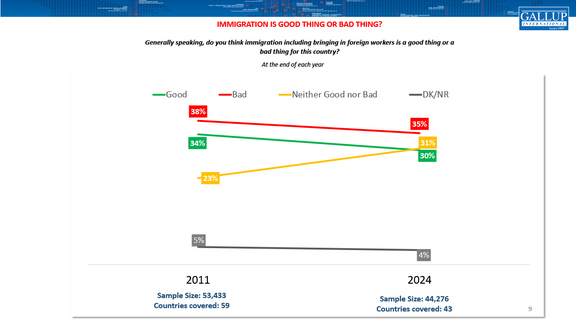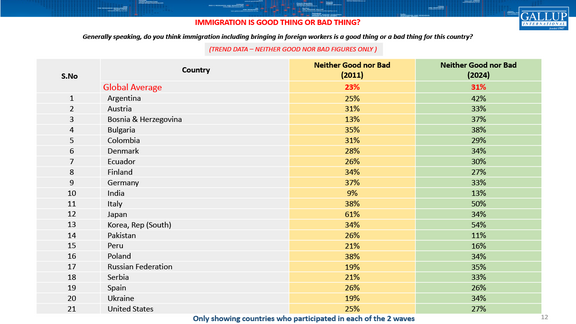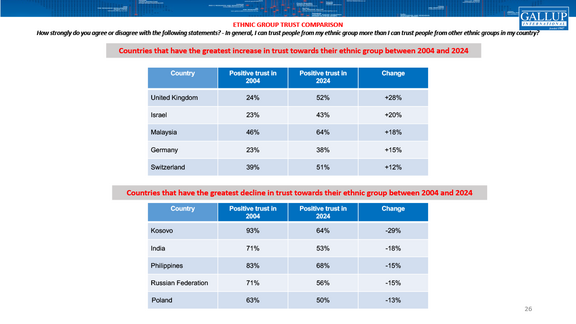Our Gallup International poll interviewed more than 44,000 adults throughout 43 countries around the world.
Those surveyed in the Philippines and Saudi Arabia were most positive towards immigration while those in Iraq, Peru and Serbia were most negative towards it. Regionally those in South Asia, Latin America and Eastern Europe were most negative. Between 2011 and 2024, Peru, South Korea and India saw greatest decline in positive feeling about immigration.
But what impact might this be having on tolerance and in this case, specifically ethnic tolerance. Our survey asked people whether they “In general, can trust people from their ethnic group more than they can trust people from other ethnic groups in their country” The change seen here over twenty years is less profound; in 2004 56 % of those surveyed agreed with the statement, while in 2024 it was 54 % (although we are less sure than we were as the number strongly agreeing with the statement fell from 28 % to 21 % over these two decades). In an international comparison, Bosnia and Herzegovina, the United States and Germany are the most tolerant countries. And more broadly, trust among those in higher income countries is significantly higher than trust among those living in lower income countries.
Michael Nitsche, President of Gallup International comments: “Immigration has been a hot topic over the last two decades and had significant media attention. Conflicts in the Middle East, Africa and Asia have caused many to emigrate in search of a better life. However, our survey reveals more people view immigration negatively than positively across the world. Countries such as the United States, Saudi Arabia and Germany host significant numbers of immigrants, many contributing to their economies. Yet in all these three countries more people view immigration positively than negatively.”
Note to Editors
Sample Size and Mode of Field Work
A total of 44,276 persons were interviewed globally. In each country a representative sample of around 1000 men and women was interviewed during October – December 2024 either face to face, via telephone or online. The margin of error for the survey is between ±3 – 5 % at 95 % confidence level.























